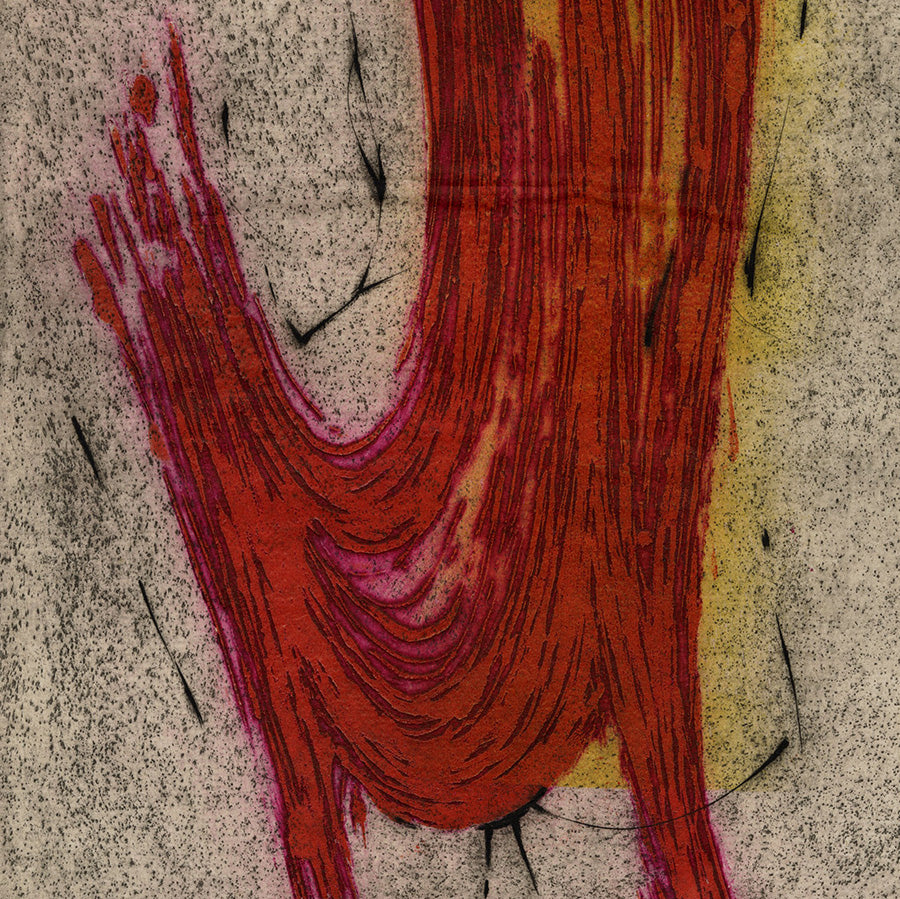
Untitled - abstract red wave
ZANARTU, Enrique
Color aquatint and drypoint printed on handmade French paper.Edition of 25. Scarce.Signed and numbered in pencil.Very fine impression in pristine ...
View full detailsEnrique Antúnez Zañartu (1921-2000), was born to Chilean parents in Auteuil on September 6, 1921, just outside of Paris, where he died on June 13, 2000. It is unclear where he grew up, but he is said to have picked up painting in the late 1930s while living in Chile, a country he seems to have visited often throughout his life, and which has adopted him as one of their own. He is often claimed to be Chilean, despite having lived in France most of his life, in Florence (Italy), in Cuba and New York. Born with the last name of Antúnez, he differentiated himself from his siblings, who were also artists, by taking his mother’s last name of Zañartu. From 1944 he lived in New York for about 3 or 4 years. This is where he developed mastery in printmaking at Atelier 17, which was run by Stanley William Hayter at 41 East 8th Street. Zañartu became Hayter’s studio assistant in New York and is quoted as being excited by the passage of so many European artists through Hayter’s studio. He stayed with the atelier for about three years, before moving to Cuba, where he spent about two years of his life. By 1950, many artists who had emigrated Europe before the war had returned; and Hayter and his atelier did too. Enrique Zañartu was sent to scout out locations. After a short while in Paris, the two men drifted apart over the way technical innovations at Atelier 17 were shared or were not. By then Enrique Zañartu’s career was launched, and he made his own way as an artist.
While his work has been described as abstract and surreal, Zañartu rejected both labels. He considered his composition faithful renditions of hidden worlds. His paintings and prints were, according to him, always related to man and human presence in landscapes. Zañartu’s work attempts to blend both forms, man and nature, into perfect accord. It must be noted that, in his printmaking, simplicity of composition and technical excellence form a rare harmony. His prints are delicately refined in their technique, while also strong compositionally. His work is scarce.

Color aquatint and drypoint printed on handmade French paper.Edition of 25. Scarce.Signed and numbered in pencil.Very fine impression in pristine ...
View full detailsPlease sign up for our newsletter
Email: info@armstrongfineart.com
Phone: 312-664-9312
1200 West 35th Street, #186
Chicago, IL 60609-1305
Copyright © 2025 Armstrong Fine Art.
Development by Alo Agency. Powered by Shopify
